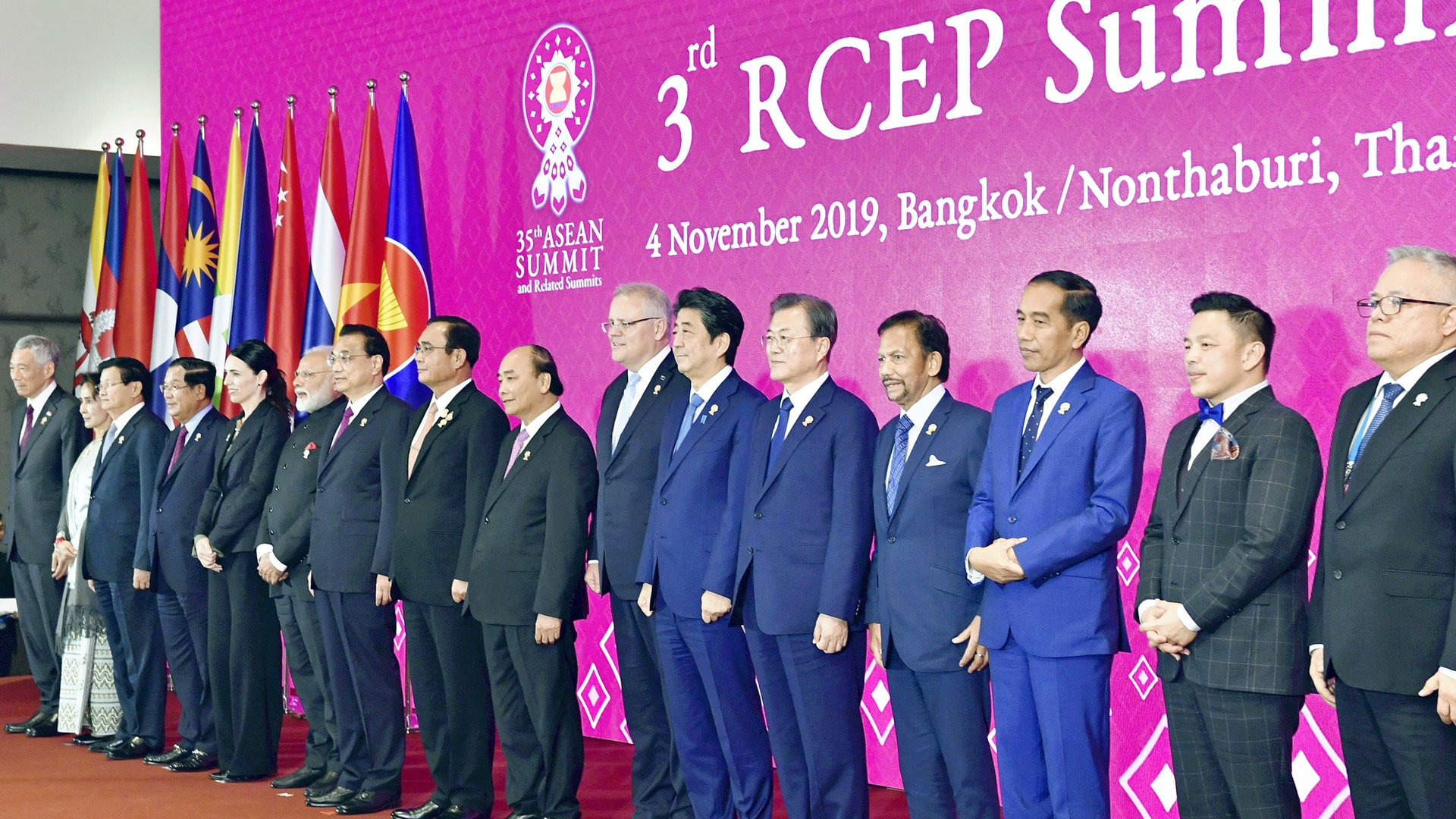Economy
China terms RCEP as ‘milestone of great significance’
China on Monday termed the Regional Comprehensive Economic Partnership (RCEP) agreement to create the world’s biggest free trade bloc as a “milestone of great significance”, while studies showed that the deal is more of a strategic significance to Beijing providing marginal economic impact. Fifteen Asia-Pacific nations, including China, on Sunday signed the agreement. India, one of the leading consumer-driven markets in the region, pulled out of talks last year, concerned that the elimination of tariffs would open its markets to a flood of imports that could harm local producers. A declaration by the countries which have signed the RCEP agreement said that they can start negotiations with India for joining the pact once New Delhi submits a written request stating its intention for the same.
Analysts say that without India, the agreement would not have much relevance as it cannot provide a big market combining India and China, the most populous countries in the world. “After 8 years of negotiations, the RCEP was officially signed,” Chinese Foreign Ministry spokesman Zhao Lijian told a media briefing here while answering a question on the agreement. “This means that the most promising agreement covering the largest population and economic volume was officially set and up. It’s a milestone of great significance, he said. As COVID-19 continues to spread, unilateralism, protectionism are rising, he said, adding that the signing of the RCEP will be a strong boost to regional and global economic recovery. “This shows strong support of all sides to multilateralism and free-trade, strong support to open and collective free trade regime. This is a show of support for collective efforts against common challenges,” he said.
Meanwhile, studies show the benefits RCEP will not outweigh the negative impact of the long-running US trade war on China’s economy even though it will make China’s market much more integrated with the rest of Asia. However, analysts agree that the trade pact, which covers 30 per cent of the global economy, is far more strategically significant than providing a direct economic impact, Hong Kong-based South China Morning Post reported on Monday. China may claim a symbolic victory in the signing of the world’s biggest trade deal in the face of ongoing US disinterest in multilateralism, but the direct economic benefits will be marginal, the Post report said. The trade agreement, initiated by the Association of Southeast Asian Nations (ASEAN) in 2012 but often regarded as a China-led counterpart to the Comprehensive and Progressive Agreement for Trans-Pacific Partnership (CPTPP), covers nearly one-third of the world’s population and gross domestic product (GDP).
Also read: ASEAN, China, other partners set world’s biggest trade pact
However, while the RCEP adds incrementally to Chinese GDP, it will not be enough to cancel out the damage of the trade war with the US, research showed. In June, researchers at the Peterson Institute for International Economics (PIIE) found that RCEP, would add 0.4 per cent to China’s real income by 2030, while the trade war would trim 1.1 per cent, should current hostilities persist. US President Donald Trump launched the trade war against China demanding Beijing to reduce the yawning trade deficit and slapped billions of dollars worth of tariffs on Chinese imports. China looks for some relief on the trade front from when US President-elect Joe Bidden takes charge in January, 2021. A study conducted last year by researchers at the University of Queensland and the Indonesian Ministry of Finance found that RCEP would add just 0.08 per cent to China’s economy by 2030. Over the same period, the trade war would slice 0.32 per cent from its GDP. Renuka Mahadevan, an associate professor at the University of Queensland who co-authored the 2019 report, said because of the dent made in the regional economy by the coronavirus pandemic, the benefit of RCEP might be more pronounced for signatories, since growth was coming from a lower base.











































